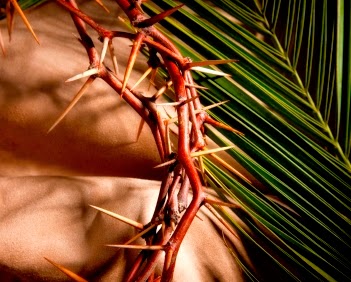By Isaac Christopher Lubogo
I. THE TRIUMPH THAT LED TO TRAGEDY
It was a Sunday like no other. The city of Jerusalem throbbed with euphoric electricity. Branches were cut from trees and laid like a royal carpet; cloaks thrown into the dust as if the King of Kings should never walk on bare earth. “Hosanna!” they cried. “Blessed is He who comes in the name of the Lord!” Their voices thundered across the streets and temples, a choir of palms and praises, as the man from Nazareth—gentle and riding on a donkey—was welcomed not as a carpenter’s son, but as a Messiah.
But what is a crowd, if not a wave? A thing beautiful to behold, yet terrifying when it turns.
In just five days, the very mouths that sang “Hosanna” would scream “Crucify him!”
How can a man descend from divine glory to public scorn in under a week?
Welcome to the theatre of human inconsistency.
II. THE PHILOSOPHY OF PRETENCE
This, dear brethren, is not just a Biblical episode—it is a mirror into the soul of humanity. For how often do we raise our heroes on pedestals only to drag them down at the scent of their humanity? How often do we clap for the rising star, only to hiss when it begins to shine brighter than our comfort can tolerate?
Blaise Pascal once said, “The heart has its reasons which reason knows nothing of.”
But perhaps he was wrong—perhaps the heart simply has no allegiance.
Human beings pretend to love what they fear to become, and later crucify what exposes their emptiness.
III. ENTER PILATE: THE GOVERNOR OF CONSCIENCE
Pontius Pilate—the reluctant judge. History’s most tragic bureaucrat. Even he, a pagan Roman, could see the absurdity of their madness. “I find no fault in this man,” he said—not once, but thrice.
His wife—yes, even his wife—saw in a dream that this man was righteous. “Have nothing to do with that innocent man,” she warned.
But the crowd, ever thirsty for drama over truth, preferred Barabbas—a known murderer, a thief of peace, a man whose freedom would cost the soul of innocence.
Pilate, in one of history’s most symbolic gestures, washed his hands. “His blood is not on me,” he said.
And in heaven, I can almost hear him chuckle today, not out of arrogance, but divine irony: “See them now. The pretenders.”
IV. THE CROWD: A PSYCHOLOGICAL ANATOMY
The German philosopher Nietzsche warned us: “Insanity in individuals is rare; but in groups, parties, nations and epochs, it is the rule.”
What we saw that week in Jerusalem wasn’t just betrayal—it was mob psychosis. A religious hysteria. A crowd seeking catharsis through the blood of the very one who came to redeem them.
And so it is with many of us. We do not kill people with nails and thorns, but we crucify reputations, we scourge integrity, we mock pain, we cheer downfall—all in the name of tribal loyalty, political convenience, or fleeting rage.
Today’s “Hosanna” is tomorrow’s “Crucify.” Not because the object has changed, but because our motives were never real to begin with.
V. RELATABILITY: WHEN IT’S YOU ON THE DONKEY
Have you not lived this?
Have you never been the one praised when you won the scholarship, passed the bar, or bought your first car—only to be envied, accused, and abandoned when your brilliance outshone the mediocrity of your friends?
Have you not tasted the bitterness of claps that turn into slaps? Of hugs that tighten into strangleholds?
Did they not toast to you when you succeeded, only to whisper poison when you rose too high for their liking?
Oh yes. The same people who shout your praise are rehearsing your downfall. They smile, not because they love you, but because you haven’t yet reminded them of their failures.
VI. PHILOSOPHICAL TAKEAWAYS: WALK SLOWLY AMONG THE CHEERING
1. Do not trust the crowd. As Marcus Aurelius warned, “The opinion of ten thousand men is of no value if none of them know anything about the subject.” Be wary of applause from those who do not understand your calling.
2. Crucifixion often follows elevation. The more spiritual, intellectual, or moral your journey becomes, the more likely you will attract not admiration, but insecurity-induced resentment.
3. Reputation is not a shield. Even Christ—the blameless—was not spared. Do not expect the purity of your work or the nobility of your heart to protect you from betrayal.
4. Pilate’s basin still exists. There are always people around you who know you are innocent, but will still hand you over to be killed to keep their positions safe.
VII. IN CONCLUSION: THE PHILOSOPHY OF THE CROSS
The cross is not only a symbol of redemption—it is a monument to how humanity treats truth. When truth walks into our city, we may welcome it, but soon we will crucify it—because truth demands transformation, and transformation is painful.
We would rather dance with Barabbas than be broken by truth.
Let us then walk carefully among crowds that praise us. Let us not believe too quickly in “Hosannas.” Let us remember: The ones who shout loudest for you may only be rehearsing how to bury you later.
But take heart: He who was crucified rose again. Let your resurrection not be of vengeance but of deeper purpose.
“You will be betrayed. Not because you are wrong, but because your light exposes what others prefer to keep in the dark.”
– Isaac Christopher Lubogo
# SUIGENERIS






